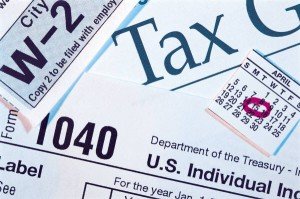 By Brian Hill
By Brian Hill
Capital News Service
RICHMOND – The rich may be rich and the poor may be poor, but a nonpartisan think tank says there’s a way to eliminate state income taxes on the poorest Virginians while providing as much as a 10 percent tax cut to everyone else.
The Thomas Jefferson Institute for Public Policy on Friday unveiled a plan to restructure Virginia’s tax system – which the group says could generate substantial economic growth.
The nonprofit group’s report recommends slashing certain business taxes and income taxes while expanding the sales tax to currently untaxed services.
“By expanding the current sales tax to most of the industries that do not currently collect it from their end-user individuals, every individual taxpayer can be substantially helped,” said Michael Thompson, president of the Thomas Jefferson Institute.
“The competitive business environment in Virginia can be enhanced, and our state and local governments would not lose a penny.”
The institute, based in Springfield, advocates a philosophy of “limited government, free enterprise and individual responsibility.” Its new economic study, “Tax Restructuring in Virginia: Revenue Neutral Path for Improving Virginia’s Economy,” was prepared by Chmura Economics and Analytics, a Richmond consulting firm.
“Basically, this is a collaborative team effort,” Xiaobing Shuai, Chmura’s senior economist, told reporters during a telephone news conference. “What Chmura Economics did in this study is go through probably 100-plus sales tax exemptions, and then try to estimate the value of those sales tax exemptions.”
A computer model developed by economists at the Beacon Hill Institute, an independent public policy foundation at Suffolk University in Boston, tested various scenarios for overhauling Virginia’s tax system.
Nine economic scenarios were put through the tax model.
“We took Chmura’s numbers, which is a static model that doesn’t account for the positive economic benefits of the tax restructuring, and put them in our dynamic model and ran the nine scenarios that you see in the study,” said Paul Bachman, director of research at Beacon Hill Institute.
“The model resolves for new values, and we get new values for jobs, investment and disposable income. What we are doing, in economic terms, is shifting some of the tax burden away from businesses and households in some scenarios and putting it onto an untaxed service sector.”
Virginia currently exempts almost all services, from haircuts to auto repair, from sales taxes.
A major goal of the Thomas Jefferson Institute’s plan is to eliminate three taxes that businesses consider onerous and an impediment to creating jobs:
Virginia businesses must pay those taxes regardless of whether they make a profit. Thompson called them “job-destroying taxes,” saying they discourage businesses from expanding and hiring more employees.
The Thomas Jefferson Institute initiated its study to see if it was possible to eliminate those taxes and restructure the state’s tax system in a revenue-neutral manner that could improve Virginia’s economy.
The nine scenarios outlined in the study range from a relatively small impact to a radical overhaul.
The first scenario, for example, would simply eliminate the BPOL, M&T and Merchants Capital taxes and make up the revenue by extending the sales tax to certain currently untaxed services. The study said this would create 900 private-sector jobs.
Other scenarios suggested not only eliminating the three business taxes but also eliminating the lowest income tax bracket and cutting other personal income tax rates. Under these scenarios, the sales tax would be expanded to more services. In some scenarios, the sales tax would be cut, too. (It’s currently 4 percent for the state and 1 percent for local government.)
The scenarios did not specify exactly what types of services would be taxed. The study acknowledged that taxing medical bills, health insurance premiums, private school tuition and financial fees probably wouldn’t fly.
The more extensive scenarios would create at least 40,000 jobs, the study said.
“We know the facts in this new study and in our tax model will dramatically improve Virginia’s economy while giving every taxpayer a substantial reduction in their state income taxes,” Thompson said. “We encourage our leaders to pursue a sensible tax restructuring that can help everyone in our state.”
Support Bristow Beat - Donate Today!